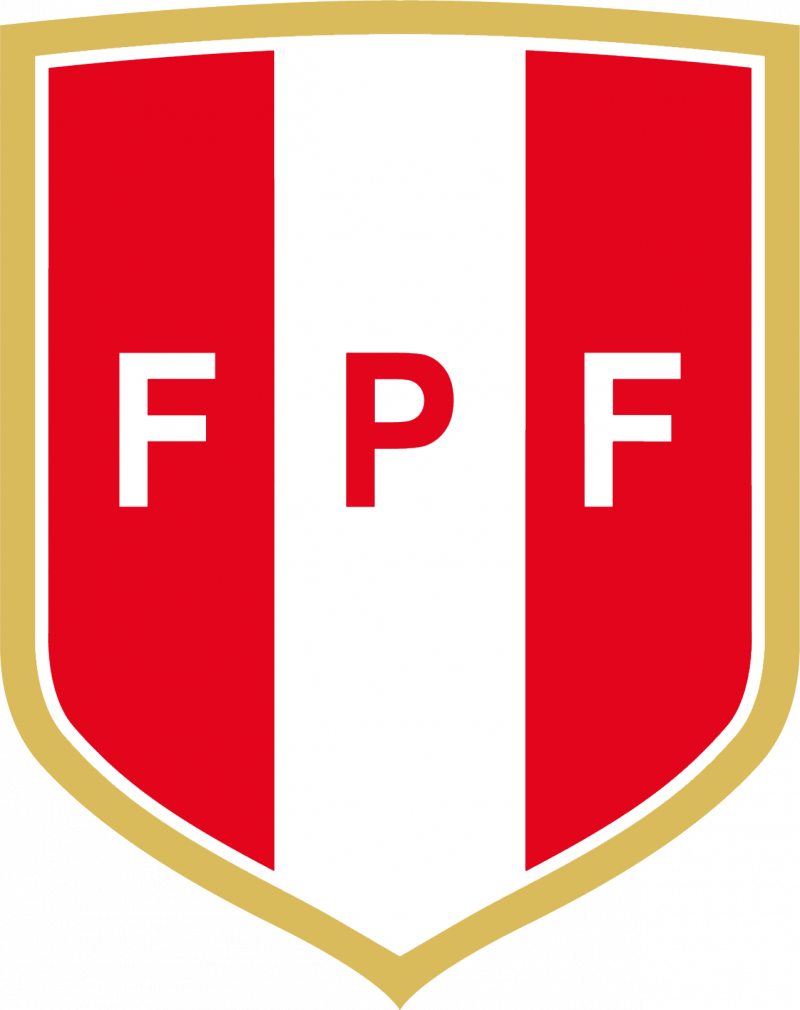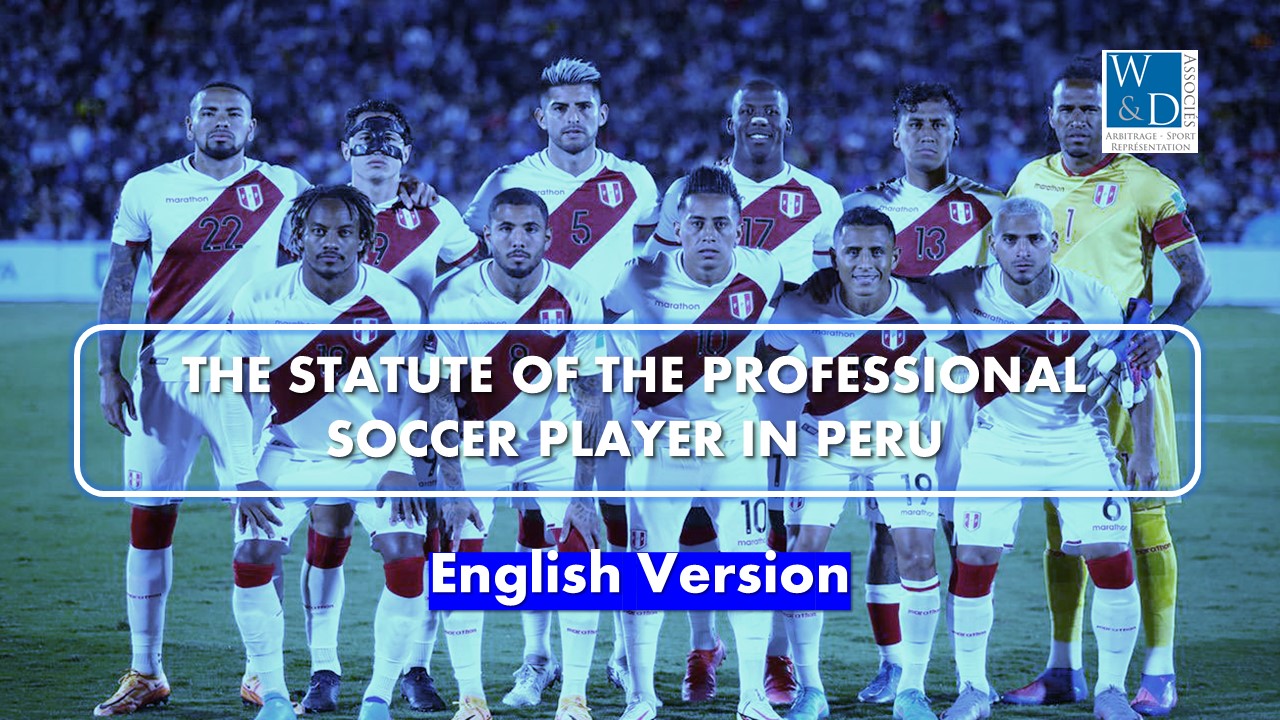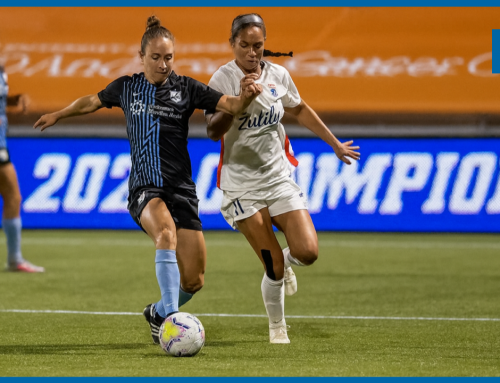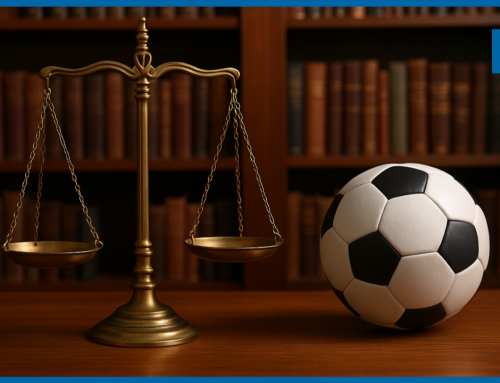Published and translated by the firm Winter – Dávila & Associés
Paris, 04 april 2022

Author: Miguel Ángel Dávila
Lawyer from the University of Lima (Peru); Master 2 in sports law from the Université Paris 1 – Panthéon Sorbonne (France); arbitrator of the Chamber of Conciliation and Dispute Resolution (CCRD) of the Peruvian Football Federation (FPF); president of the Justice Commission (CJ) of the Peruvian Rugby Federation (FPR); partner of Estudio Valdivia – Dávila & Asociados (Peru); partner of Winter – Dávila & Associés (France); member of the Director Committee of the Association Droit du Sport Paris I Panthéon – Sorbonne (DSS) of France; member of the Peruvian chapter of the Ibero-American Institute of Sports Law of Brazil (IIDD) and former player of the Peruvian National Rugby Team.
📍Versions of the article available in other languages::
🇪🇸 Versión en Español
🇫🇷 Version Française
Would you like legal advice on sports law? Do not hesitate to contact us!
Introduction
In order to legally analyze professional soccer and the contracts of professional soccer players[1] in Peru, we must take into account that such an effort inexorably leads us to the Statute of the Professional Soccer Player of Peru (EFPP) and the Chamber of Conciliation and Dispute Resolution (CCRD) of the Peruvian Soccer Federation (FPF), which we will discuss in another article.
YOU CAN ALSO READ: Sports Justice in France
This introduction, which seems to be more of a conclusion, is actually the best way to understand the problems of Peruvian sports, characterized by being mostly amateur or semi-professional, because, instead of signing labor contracts, most athletes in the country receive public subsidies or private sponsorships, unlike soccer, a sport in which everything is regulated by public laws, regulations, bylaws and/or collective bargaining agreements. On the other hand, it is the only discipline that has an Arbitration Chamber to resolve its conflicts.
Taking into account these considerations, in the present publication we will briefly review the Peruvian Professional Football Player’s Statute.
The Peruvian Professional Football Player Statute
As noted in the introductory part, we will briefly analyze the EFPP, but before doing so, we must be clear about what this document is. Well, unlike most countries in the region, the labor relationship of the professional soccer player is regulated in a collective bargaining agreement, called “Statute”, since July 1, 2005, product of negotiations between:
– The Union Association of Aggregated Soccer Players of Peru (SAFAP);
– The Professional Soccer Sports Association (ADFP) and
– The Peruvian Soccer Federation (FPF).
The Statute regulates the Working Day, Working Hours, Rest, Vacations and in general the minimum conditions that Professional Soccer Players’ Contracts must have. On the other hand, the aforementioned document also provides for the existing contracting modalities, the Formation Agreement, the economic conditions and the Rights of Professional Football Players.
Likewise, the statute contemplates the express submission to the Chamber of Conciliation and Dispute Resolution of the F.P.F., in case any conflict arises between the parties[2]. This particularity is what makes the difference for Peruvian soccer players, in comparison to the majority of their South American colleagues. Because the C.C.R.D. is an Arbitration Chamber that is not only empowered to hear civil or sports matters, such as Formation Rights, for example, but it is also competent to hear Labor Law matters, as we will see in another article.
YOU CAN ALSO READ: The four Chambers of The Court of Arbitration for Sport

Logo of the Peruvian Football Federation.
Now, the Peruvian Professional Soccer Player’s Statute is divided into seven chapters containing 43 articles, which we will briefly examine in order to have a clearer idea of what is regulated:
- Chapter I: General Regulations: Establishes and regulates the working conditions of national or foreign professional soccer players, who render their services to clubs or corporations of any kind, provided that they are under the jurisdiction of the Peruvian Soccer Federation and are engaged in the professional practice of this sport.
- Chapter II: Workday, Schedule, Rest and Vacations: The Working Day is specifically covered, such as the 8-hour daily limit, in accordance with Peruvian Labor Legislation. A noteworthy aspect is that the second chapter distinguishes between the services rendered by the players before the public (matches), as well as the time when they are under the Club’s orders (training, camps, recordings, etc.).
- Chapter III: Employment Contract, Modalities, Training Agreement, Evaluation Period: This point of the Bylaws is in accordance with the provisions of Law No. 26566[3], Law of the Labor Regime of Professional Soccer Players, which stipulates the obligation to agree in the contract the remuneration, match awards, insurance and other applicable remuneration concepts.
On the other hand, it is established that there is no limit for the hiring of professional soccer players, except for foreign players, in which case they must act in accordance with the provisions of the Peruvian Soccer Federation. A not minor fact is that at the beginning of the Covid-19 Pandemic, the ADFP agreed with the FPF to authorize 5 foreigners on the field until the end of the 2020 season, an extraordinary situation, since normally only 4 foreigners were authorized on the field and 5 on the team list. The main reason for the negotiation was that the foreign players, being the reinforcements of the clubs, are the ones with the highest salaries, therefore, the ones that mean the greatest economic effort for the teams. However, during the stoppage of the championship, from March to August, the players continued to receive their salaries without playing, so the clubs asked the FPF to take this into account and thus managed to increase the number of foreign players on the field in an extraordinary way.
Another subject of debate, as Peruvian lawyer Gianfranco Sánchez Palomino points out in his article “Los extranjeros comunitarios en el fútbol peruano[4]“, are the players belonging to the Andean Community of Nations (CAN), formed by Bolivia, Colombia, Ecuador and Peru. Sánchez-Palomino states that, as in the European Union (EU), the CAN has also provided for the free movement of workers in Decision 545 of the Andean Labor Migration Instrument.
YOU CAN ALSO READ: The uncertain future of sports arbitration clauses in Germany
In this regard, he maintains that athletes from those countries should not be counted as foreign players, a position that I support and I imagine will be recognized by the FPF and the other federations involved in the short term.
- Chapter IV: Economic Conditions: In this part it is typified that professional soccer players have the same rights as ordinary fixed-term or fixed-term workers. That is to say, the money received by the players has the character of remuneration, being possible to contractually agree other payments that do not have a remunerative character, such as bonuses for results. The most commonly used are the achievement of the first place, the qualification to the Copa Libertadores or, failing that, to the Copa Sudamericana.
Likewise, it is recognized that professional soccer players are entitled to paid vacations, the right to be treated in the National Health System and the legal bonuses, which in Peru are 2, Fiestas Patrias[5] and Christmas.
- Chapter V: Rights of Professional Football Players: Players are recognized the Right to Freedom of Expression, as stipulated in Article 2 of the Political Constitution of Peru[6], as well as in the various international treaties to which Peru is a party, such as Article 19 of the Universal Declaration of Human Rights of the United Nations[7].
Likewise, it reiterates and recognizes the Union Rights of the Professional Soccer Players and the Rights that have been the result of the collective negotiation between the SAFAP, the ADFP and the FPF, which due to the subject of the present work cannot be treated in extenso in this article, but which can be studied in detail together with the entire Peruvian Professional Soccer Players’ Statute in another work of the undersigned[8].
- Chapter VI: Rights of the Union: It establishes obligations that the Peruvian Soccer Federation has with SAFAP (tickets for national team matches, among others).
- Chapter VII: Other Provisions: The entry into force of the Peruvian Professional Soccer Player’s Statute is typified.
YOU CAN ALSO READ: The professionalisation of women’s football
Conclusions
In Peru there is only one professional sport and that is Soccer. In this sense, there are laws, regulations, bylaws and/or collective bargaining agreements that regulate the labor relationship between the professional soccer player and the sports associations or societies. However, as mentioned above, the treatment of foreign players coming from the CAN is still pending. The undersigned considers that they should not occupy a “foreign quota” as is the case with EU players.
If you liked this Sports Law topic, we invite you to share the article, comment on it and also to visit the rest of publications in the social networks and platforms of Winter – Dávila et Associés
If you would like legal advice do not hesitate to contact us! (email: contact@wdassocies.com)
Original language of the article: Spanish
Bibliography
– Peruvian Professional Soccer Player’s Statute.
– Law N° 26566 – Normas Referidas a la Relación Laboral de los Futbolistas Profesionales con los Clubes Deportivos (Peru).
– D.S. 003-97 – Sole Ordered Text of the Law of Labor Productivity and Competitiveness (Peru).
– FIFA Regulations on the Status and Transfer of Players (Peru).
– Political Constitution of the Peruvian State.
– Universal Declaration of Human Rights of the United Nations.
– Dávila, M. (2018). Relación Laboral del Futbolista Peruano: Estatuto del Futbolista Profesional Peruano. Revista Iberoamericana de Direito Despotivo, Vol. 1 (N° 1), 231-245.
– Sánchez, G. (2019) “Los extranjeros Comunitarios en el Fútbol Peruano”. Article available at the following link: https://www.linkedin.com/pulse/los-extranjeros-comunitarios-en-el-f%C3%BAtbol-peruano-s%C3%A1nchez-palomino/
References
[1] In Peru, professional soccer players are considered to be those athletes who have an employment contract with sports associations or societies whose teams participate in League 1 (First Division) or League 2 (Second Division).
[2] The parties are defined as:
(i) The sports associations or societies that own teams participating in League 1 or League2.
(ii) Professional soccer players.
(iii) Coaches, physical trainers and in general any member of the coaching staff of the associations or societies of point (i).
[3] Ley N° 26566 – Ley del Régimen Laboral de los jugadores de Fútbol Profesional. Diario Oficial de la República del Perú, Lima, Perú, 29 de diciembre de 1995.
[4] The complete article can be consulted at the following link: https://www.linkedin.com/pulse/los-extranjeros-comunitarios-en-el-f%C3%BAtbol-peruano-s%C3%A1nchez-palomino/
[5] July 28th and 29th.
[6] Artículo 2° de la Constitución Política del Estado Peruano. Diario Oficial de la República del Perú, Lima, Perú, 29 de diciembre de 1993.
[7] Artículo 19° de la Resolución 217 A (III) – Declaración Universal de los Derechos Humanos de la Organización de las Naciones Unidas. Asamblea General de las Naciones Unidas, París, Francia, 10 de diciembre de 1948
[8] Dávila, M. (2018). Relación Laboral del Futbolista Peruano: Estatuto del Futbolista Profesional Peruano. Revista Iberoamericana de Direito Despotivo, Vol. 1 (N° 1), 231-245.
This article was published and translated by Winter – Dávila & Associés, an international law firm based in Paris, in France, represented by lawyers specialized in arbitration, corporate law, sports law and representation.








Leave A Comment